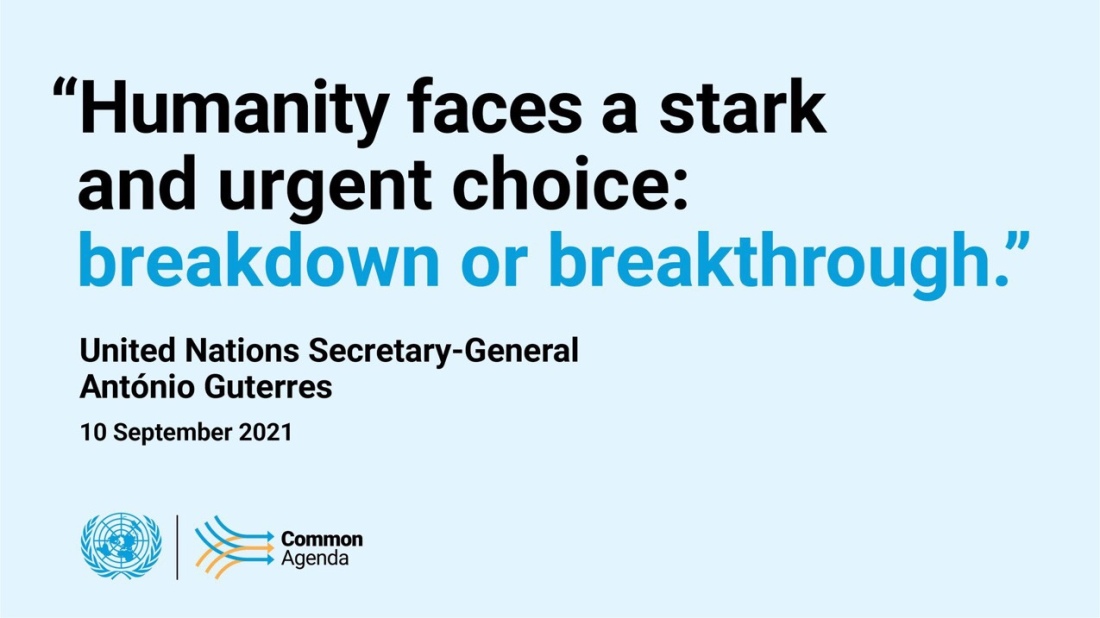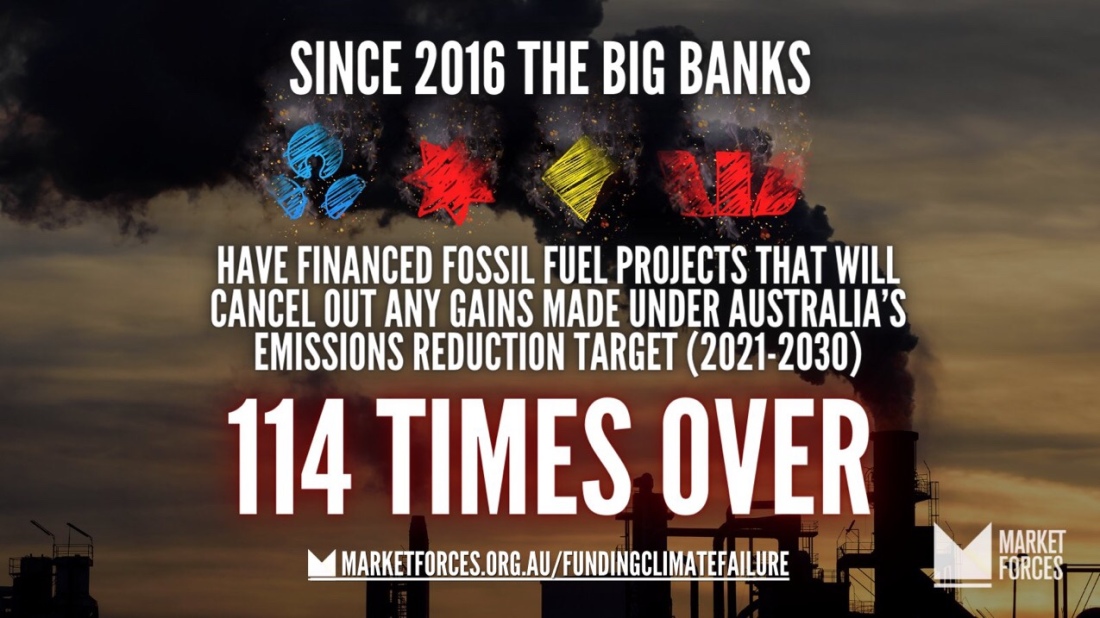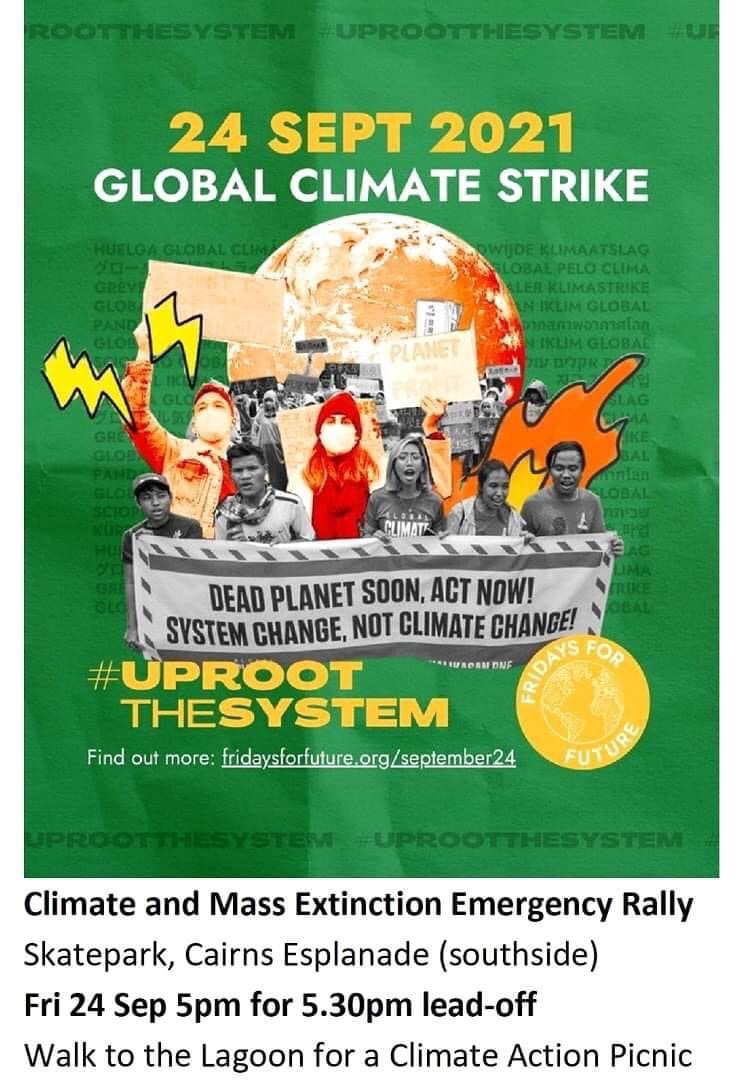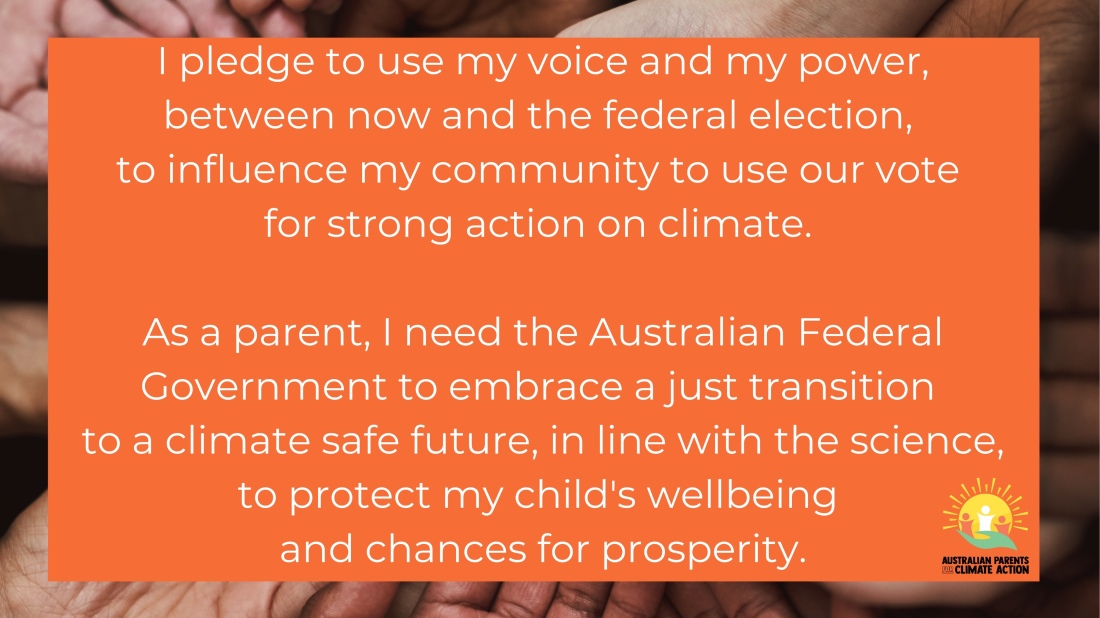The President of the UN General Assembly on Tuesday opened the annual General Debate, this year held as a hybrid in-person and virtual event, reflecting on the darkest days of the pandemic, “when cities were shuttered and vaccines still a dream” and how the world’s peoples “came together as never before”. |

Abdulla Shahid of the Maldives said that after a year and a half of suffering “in silence and in anxiety”, it was hope and a sense of shared humanity that enabled this coming together, adding: “Let us give them hope now”.
He recalled that “in record time”, scientists globally collaborated to develop multiple COVID-19 vaccines and “the largest vaccine roll-out in the history of humankind”, calling it a “monumental” undertaking to “be proud” of.

Awake at night’
The Assembly President said that over the next 12-months, the world wants solutions to the collective challenges of “fragility, conflict, COVID-19, [and] climate change”.
“These issues…keep our citizens awake at night, they fuel a collective anxiety and a worry that things are progressively getting worse”, he explained.
“They are not wrong. We can do more”, Mr. Shahid said.
Breaking down the issues
On COVID-19, the UN official outlined that the world has vaccines, know-how and distribution capacity, but “we lack only the political support”.
And despite incredible innovations in renewable energy, adaptive technologies, and transitioning away from fossil fuels, he noted, “political support and the related financing” is in short supply on the changing climate.
While highlighting a near-universal desire for nuclear disarmament and non-proliferation, the Assembly President said, “yet we falter at the finish line, leaving treaties unratified”.
Finally, on the humanitarian front, he pointed out that despite a more-than-sufficient supply of food and water in the world, famine and drought hang in the balance.
“Hundreds of millions will require humanitarian assistance by year’s end”, warned Mr. Shahid.


Time to forge a ‘new path’
Pointing out that we are living through a “turning point” moment in time, he said: “We can choose a path of isolationism…mutual destruction…slow retreat of the human experiment, or we can forge together a new path, a sustainable and resilient path that changes the future of our planet”.
While describing the COVID-19 pandemic as “a tragedy of the grandest scale”, he also referred to it as a “canary in the coal mine”, warning of the perils that lie ahead if hard but necessary choices are not made.
Mr. Shahid cited in the power of humanity to overcome challenges and was hopeful “that we can bypass protocols and obstacles to transform our societies”.


‘Rays of hope’
The UN official shared his intention to pursue five “rays of hope” to direct the Assembly’s 76th session, beginning with vaccine equity.
To this end, he will host a high-level meeting focusing on practical obstacles around supply, storage, and distribution.
And on longer-term COVID-19 recovery, he vowed to push to build back “better, stronger, greener, and bluer”.
“By following the paths laid out by Agenda 2030 [on sustainable development for all] we can pivot away from destructive practices and embrace a better future”, Mr. Shahid said.


Climate cliff
The Assembly President spelled out the importance of refocusing attention to the climate crisis, “which has taken a backseat to COVID-19”.
Citing the report of the Intergovernmental Panel on Climate Change (IPCC), he said: “We are no longer on the wrong path… we are on the edge of the cliff”.
To address this, Mr. Shahid will host a series of climate action events, beginning with helping to bridge gaps to deliver on climate promises – in the lead-up to November’s UN climate conference (COP26), and later, a “super session on the environment” that encompasses the interlocking issues of the ocean, desertification and biodiversity.
Focus on efficiency
Finally, the Assembly President underscored the importance of continued UN reform and revitalization, saying “this is not about a balance of power, this is about efficiency”.
“We have never been so technologically advanced…so connected…[or] had the wealth, the resources, or the know-how that we have now. There is nothing in our path to stop us but ourselves. Let us be the UN that people want us to be”, he said.
Full statement available here.
— Read on news.un.org/en/story/2021/09/1100462


A call to action from Jane Fonda, one of the most inspiring activists of our time, urging us to wake up to the looming disaster of climate change and equipping us with the tools we need to join her in protest
“This is the last possible moment in history when changing course can mean saving lives and species on an unimaginable scale. It’s too late for moderation.”
In the fall of 2019, frustrated with the obvious inaction of politicians and inspired by Greta Thunberg, Naomi Klein, and student climate strikers, Jane Fonda moved to Washington, DC to lead weekly climate change demonstrations on Capitol Hill. On October 11, she launched Fire Drill Fridays (FDF), and has since led thousands of people in non-violent civil disobedience, risking arrest to protest for action. In her new book, Fonda weaves her deeply personal journey as an activist alongside conversations with leading climate scientists, and discussions of specific issues, such as water, migration, and human rights, to emphasize what is at stake. Most significantly, Fonda provides concrete solutions, and things the average person can do to combat the climate crisis in their community.
No stranger to protest, Fonda’s life has been famously shaped by activism. And now, she is once again galvanizing the public to take to the streets. Too many of us understand that our climate is in a crisis, and realize that a moral responsibility rests on our shoulders. 2019 saw atmospheric concentrations of greenhouse gases hit the highest level ever recorded in human history, and our window of opportunity to avoid disaster is quickly closing. We are facing a climate crisis, but we’re also facing an empathy crisis, an inequality crisis. It isn’t only earth’s life-support systems that are unraveling. So too is our social fabric. This is going to take an all-out war on drilling and fracking and deregulation and racism and misogyny and colonialism and despair all at the same time.
As Annie Leonard, Executive Director of Greenpeace US and Fonda’s partner in developing FDF, has declared, “Change is inevitable; by design, or by disaster.” Together, we can commandeer change for the positive–but it will require collective actions taken by social movements on an unprecedented scale. The problems we face now require every one of us to join the fight. The fight for not only our immediate future, but for the future of generations to come.



